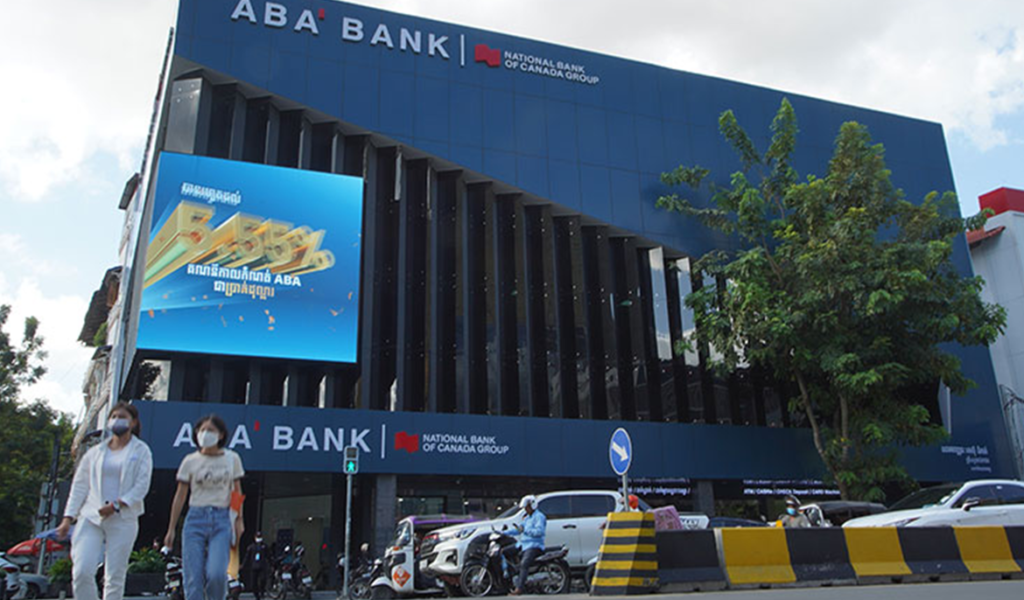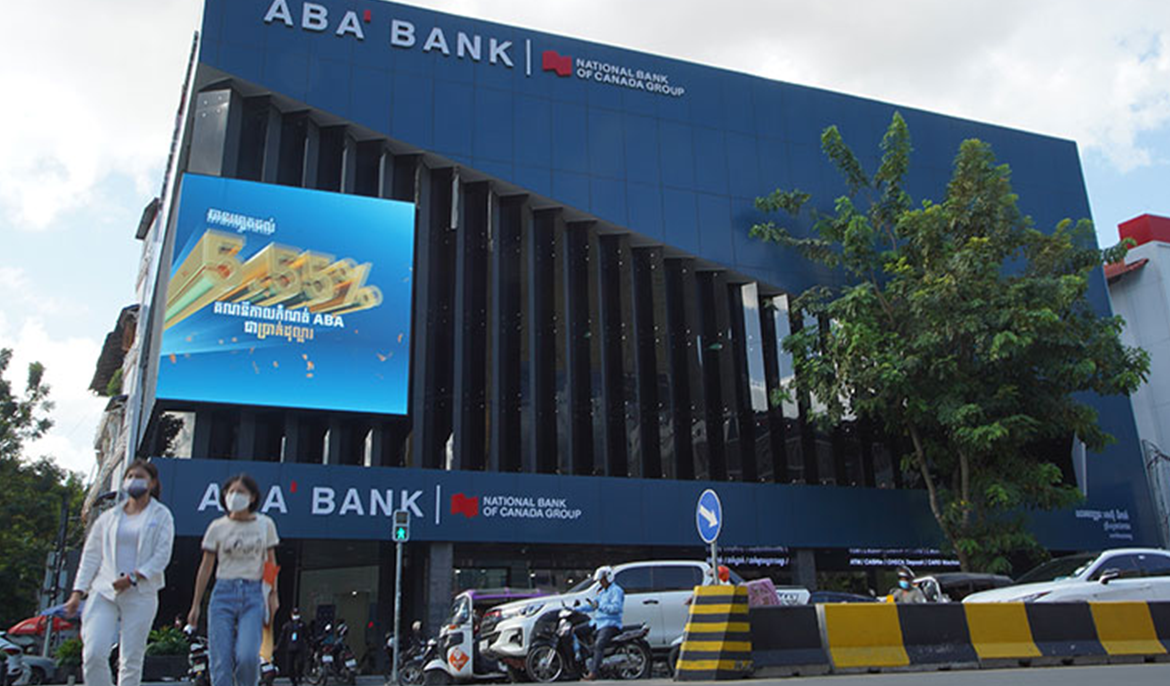Opening a bank account from the comfort of your home is possible today thanks to e-KYC services in Cambodia.
KYC – Know Your Customer (KYC) norms, adopted by banks, earlier required the presentation of identity cards and the physical presence of customers at the bank branch. But since the National Bank of Cambodia (NBC) changed its regulations, over the last few years more banks are able to offer Cambodians the ease of accessing banking services online.
ABA Bank for instance implemented its e-KYC process in December 2020 and said it has seen a steady increase in usage. “In 2022, about 47 percent of ABA Bank customers chose to open new accounts in-person at our bank branches, while 53 percent chose to do e-KYC. This number increased for us in 2023 – with a majority (62 percent) opting to open accounts via e-KYC, compared to 38 percent choosing to do so physically,” said Igor Zimarev, Chief Marketing Officer, ABA Bank.
Another very interesting use case for e-KYC, is deposit-taking MFI AMK using e-KYC for rural customers, including farmers. Traditionally MFIs have collection agents, who collect loan installments on their behalf from rural customers. Since the loan installment amount is small it is more cost-effective for these collection agents to work on the ground and collect; than for a rural customer to travel all the way to the nearest bank/MFI branch. Earlier it was only loan collection that was handled by these agents, but now with e-KYC agents are using the MFI’s mobile app for opening deposit/savings accounts.
In 2022, the Central Bank issued more e-KYC guidelines to verify, match or identify customers to avoid the risk of fraud and cyber crimes when customers open an account using the Bakong system. NBC signed a memorandum of understanding (MoU) with Techo Startup Center (TSC) of the Ministry of Economy and Finance in July 2022. The MoU also saw the launching of CamDigiKey version 2.0, is a decentralised data exchange platform that banks can use to verify identities in the e-KYC process.
So why are banks, microfinance institutions (MFIs) and insurance companies wanting to switch to e-KYC? “One, it reduces the cost of account opening. And secondly, it improves processing speed, reduces workload for bank employees and there is less chance of introducing human errors like errors in people’s names and typos. There is also the possibility of scaling up faster – as services can be offered to a much wider audience,” said George Lee, Chairman, Innov8tif Solutions.
“To sum it up eKYC offers customers and banks convenience, speed, and privacy,” added Lee from Innov8tif Solutions, which provides e-KYC solutions to eight banks and two MFIs in Cambodia.
While Innov8tif has set up a local company in Cambodia – its parent firm is Malaysia-based and in other regions of ASEAN it also has insurance companies and telecom majors as clients.
What are the metrics that e-KYC usually looks for? “It would be name, address date of birth, national ID number,” said Phoukkol Say, business consultant, Innov8tif. “In Cambodia currently only the national ID and passports are accepted as identity cards for e-KYC. Documents that other countries use such as driving license are still not applicable here,” he added.
Bankers say the possibility of fraud and identity theft is quite negligible, given the Central Bank and Ministry of Finance have ensured stringent authentication and assessment of identity with its CamDigiKey mechanism.
“We do need to carefully assess who we are taking on board as a customer because of Cambodia’s law on anti-money laundering. We do alert the Cambodia Financial Intelligence Unit on any suspicious transactions at the bank end,” said a bank CEO, who did not want to be named. “So, while we have adopted KYC norms, we’ve to make sure our identity checks are foolproof,” he added.
Other banks that have adopted e-KYC in the country include the Bank for Investment and Development of Cambodia Plc (BIDC). BIDC said that it allows customers to open a BIDC mobile banking account online via eKYC authentication. The bank said, “Customers need to take photos of their National ID and scan their face for the system to check and register accounts automatically. Our e-KYC solution uses artificial intelligence and biometric authentication such as facial recognition.”
Last year in February Hattha Bank Plc joined CamDX, the decentralized data exchange platform developed and launched by Techo Start-Up under the Ministry of Economic and Finance as per the 2022 MoU signed. Hattha Bank usage of CamDigiKey lets its customers open savings accounts online via the Hattha Mobile app version 3.0. khmertimeskh



